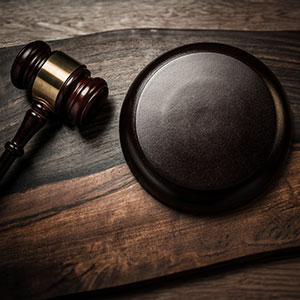
A charge for operating under the influence, or OUI, can carry steep penalties. Depending on prior convictions and other circumstances, a conviction can lead to jail or even prison if a felony OUI. Incarceration is not the only penalty prescribed by state law: steep fines and the suspension of your driving privileges are also standard punishment. These statutory penalties can have a life-changing effect on your life and your freedom, but they are only some of the consequences that come with an OUI conviction.
In addition to statutory penalties, you could also face collateral consequences that you never expected. While these penalties are not written into the law, they are nevertheless significant. Here are three collateral consequences of an OUI conviction you may not be familiar with.
Difficulty Obtaining Housing
An OUI conviction – like any criminal conviction – will be reflected on your permanent criminal record. While a criminal record can cause a host of problems, one unexpected challenge is a problem finding adequate housing.
Now more than ever, landlords and property management companies are running comprehensive background checks on all applicants. Under the law, there is nothing preventing a property owner from rejecting your application based on your criminal history. While not every prospective landlord will reject you out of hand due to an OUI conviction, it can certainly limit your options.
Revocation Of Professional Licenses
Another potential consequence of an OUI conviction is the suspension or revocation of your professional license. There are many professions that require a license, and most if not all of them include provisions for good character. Examples of professions that require professional licenses include:
- Doctors
- Nurses
- Lawyers
- Commercial pilots
- Teachers
- Certified public accountant.
In many cases, a criminal conviction can result in the loss of a professional license. It is worth noting that in most cases, a first-time offense is not enough to lose most professional licenses, but nothing is ever guaranteed. Repeated convictions or a felony charge could quickly cost you your license as well as your livelihood.
Child Custody Complications
Child custody conflicts are often stressful to begin with. The addition of a criminal conviction will never benefit you either. If you are in the process of divorcing and you have children, your soon-to-be former spouse is likely to use an arrest and conviction against you. A conviction – though not always relevant – could be what tips the scale against you, unfortunately.
You could be impacted even if your divorce proceedings are over, too. If you have minor children, it remains the court’s responsibility to act in their best interest. If the other parent seeks a change of custody due to your conviction, they could make a compelling case. This is especially true if the children were in the car with you at the time of the arrest.
An Oui Charge Is Worth Fighting
Given the direct and collateral consequences of an OUI, it is in your best interest to fight the charges against you. These charges are defensible. If you have been charged with an OUI in Maine, contact the Law Offices of William H. Ashe as soon as possible.
William Ashe is an experienced trial attorney with a career track record of determined
effective representation and consistent sustained success on behalf of his clients. He has
been named to the National Trial Lawyers Top 100 Criminal Defense Attorneys every year
since 2014 and has a perfect 10.0 rating by the lawyer rating site Avvo. (207) 813-2935